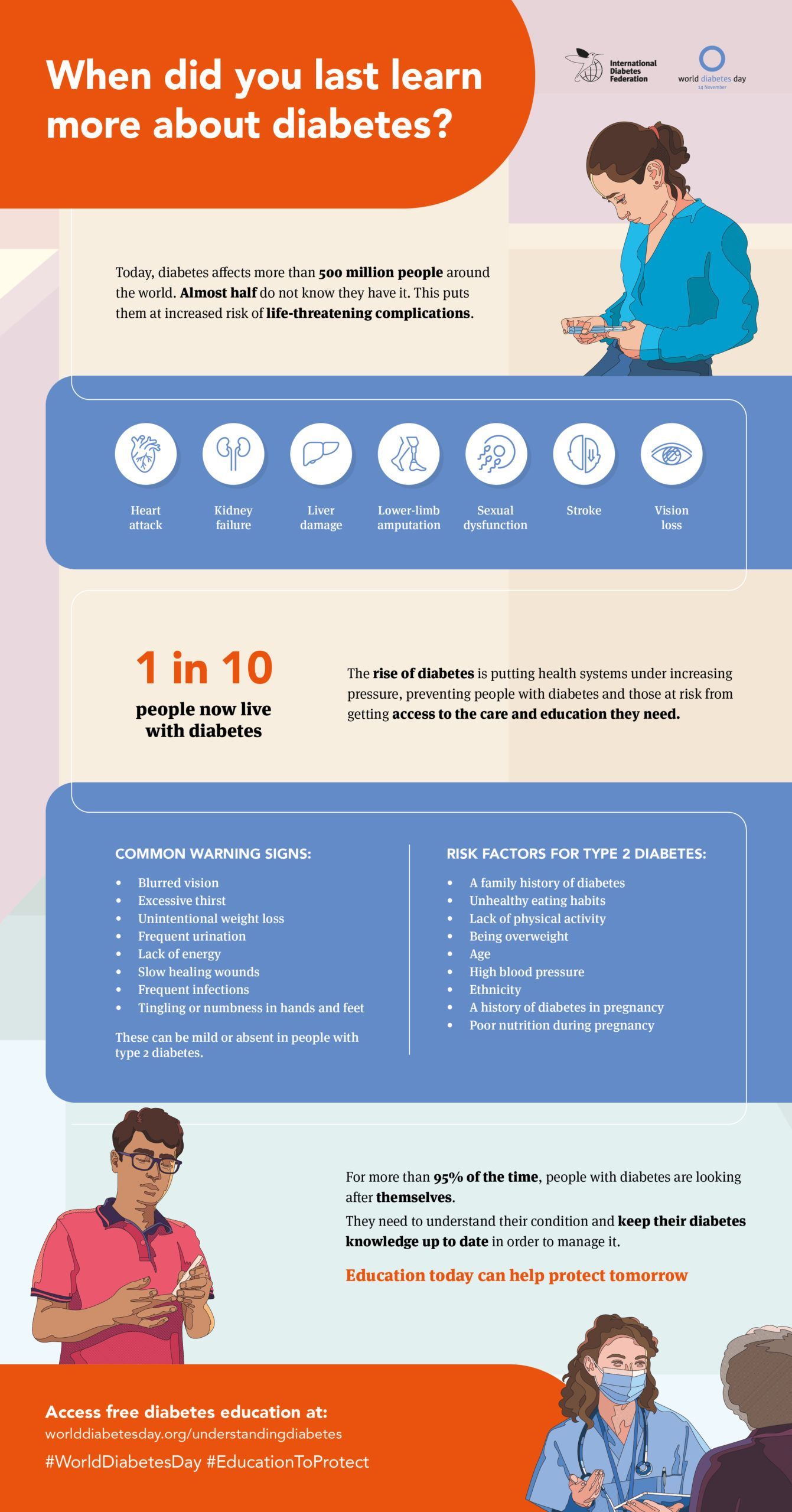Navigating Diabetes
Here's What You Need to Know
Diabetes, a chronic condition that affects how your body turns food into energy, has become a prevalent health concern worldwide.
In the United Kingdom alone, over 4.9 million people are diagnosed with diabetes, with an estimated 13.6 million at increased risk of developing the condition.
Around 850,000 people in the UK are estimated to have undiagnosed diabetes.
Understanding the two main types of diabetes, Type 1 and Type 2, is crucial for effective management and treatment.
Type 1 vs Type 2: What's the difference?
Type 1 Diabetes: An Autoimmune Encounter
Type 1 diabetes is an autoimmune condition where the body's immune system attacks the insulin-producing cells in the pancreas. This results in an inability to produce insulin, a hormone that regulates blood sugar levels.
Type 1 diabetes typically develops in childhood or adolescence but can occur at any age.
Symptoms to look for:
- Increased thirst and urination
- Unexplained weight loss
- Constant hunger
- Blurred vision
- Fatigue
- Slow-healing sores or cuts
Type 2 Diabetes: A Lifestyle-Related Challenge
Type 2 diabetes is characterized by insulin resistance, where the body produces insulin but doesn't use it effectively. This leads to elevated blood sugar levels.
Type 2 diabetes is often associated with lifestyle factors such as obesity, physical inactivity, and unhealthy dietary habits.
Symptoms to look for:
- Increased thirst and urination
- Unexplained weight loss or gain
- Increased fatigue
- Blurred vision
- Slow-healing sores or cuts
- Tingling or numbness in hands or feet
KNOW YOUR RISK
Finding out your risk of type 2 diabetes only takes a few minutes. It could be the most important thing you do today...
https://riskscore.diabetes.org.uk/start
If you are experiencing any of these symptoms, speak to a pharmacist or doctor immediately.
What triggers Diabetes?
TYPE 1
The exact cause of type 1 diabetes is still not fully understood, but it is believed to be triggered by a combination of genetic and environmental factors.
TYPE 2
Type 2 diabetes is a complex condition with multiple contributing factors, including lifestyle, genetics, and environmental influences. Obesity, diet & exercise, pregnancy and stress can all cause Type 2 diabetes.
Diabetes puts you more at risk of ear infections and ear wax build-up.
We recommend having your ears checked by a professional.
Do NOT attempt to remove the wax yourself!
Check out our five-star Ear Care Clinic for top-notch, quality care.
Treatment options for both types:
- Insulin therapy: Insulin injections or insulin pump therapy are the primary treatment for Type 1 diabetes and may be required for Type 2 diabetes in advanced stages.
- Oral medications: Various oral medications can help lower blood sugar levels in Type 2 diabetes by increasing insulin sensitivity or reducing glucose production in the liver.
- Lifestyle modifications: A healthy diet, regular exercise, weight management, and smoking cessation are essential for effective diabetes management.
Enter your email address below to receive health information and Pharmacy news
World Diabetes
Day
When diabetes is undetected and not well managed, it can lead to serious complications.
World Diabetes Day (WDD) was created in 1991 by IDF and the World Health Organization in response to growing concerns about the escalating health threat posed by diabetes.
(read more below)




